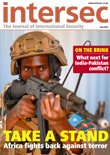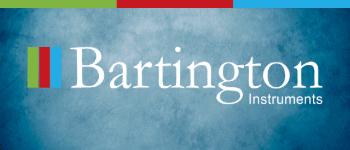Insecurity, accelerated
Justin Crump explains why leaders that take an intelligence-led approach to decision-making will have resilience and agility that will set them apart amid growing complexity
The cycle of grief has been widely accepted to explain our natural reaction to sudden loss and uncertainty. Although there are variations, Swiss-American psychiatrist Elisabeth Kübler-Ross’ original 1969 theory published in On Death And Dying proposed that humans go through the five stages: denial, anger, bargaining, depression and acceptance. This theory applies as readily to any major organisational change, yet most firms are generally no more prepared to recognise or deal with this sort of transition than the average human.
The effect of the global Coronavirus pandemic is becoming a prevalent and truly large-scale example of the cycle at an individual, governmental and international level.
Recent events have forced individuals to cope with significant change. But there is no set pattern and the way each society and economy will go through the cycle will differ. Only those businesses that have predictive resilience and security measures will enjoy certainty, allowing them to ride the storm.
Denial of change was evident very early on. Interestingly it was most obvious in developed economies such as the UK, US and France where unrelated political issues (the Trump agenda, stalling Brexit negotiations and the Gilet Jaune protests) were drawing governmental attention away from the impending pandemic.
The denial extended deep into societies; despite evidence-laden warnings, the world watched in wonder as major cities were shut down, first in China then not long after Italy. But still, there was a sense of unreality.
As late as 4 March, the UK Health Secretary was saying that travel to Italy was fine and there was nothing to be concerned about, but barely two weeks later, the UK headed into lockdown. This situation was mirrored, albeit in a more patchwork way, in the US.
In both countries, leaders initially made light of the virus – until it crossed their borders. UK and US Governments, arguably the largest global organisations with the largest security and resilience budgets available in the West, did not identify the severity of threat until it was too late.
The cycle of grief is not a linear process, and one stage may amplify another. Both international and societal fault lines were already under pressure, and while lockdowns combined with urgent economic stimulus measures may have blanketed the effects of simmering anger, recent events are suggesting that this will not last for long.
Long-standing issues such as inequality have gained new momentum at home and on the global stage. George Floyd’s death in Minneapolis and the subsequent global Black Lives Matter protests demonstrate how COVID-19 has intensified extant and justified anger. The inequality, dramatically emphasised by the effects of the pandemic, is fuelling anger and encouraging affected communities to stand up to economic and social injustice. As always, this is also driving a counter-reaction – and the far-right is a growing threat.
The stage is set for a vicious cycle. In these times of domestic tension, trigger events such as this are more likely to rapidly escalate as resentment boils over. But the situation cuts both ways. In Hong Kong, the situation has evolved under the cover of the virus, with Beijing being able to increase its grip on the territory against comparatively weak international pressure. A major question for risk analysts is that if this is where we are now, what is next?
Major change acts as a catalyst for underlying risk trends. Our own research shows that risk trends accelerated as much in the first four months of 2020 as they did in the previous four years – itself a period of rising international tension, given increasing populism and a steady erosion of global norms.
163 countries are facing deteriorating political, security, criminal or governance situations, and economic forecasts continue to be revised downwards. Initial forecasts of the fallout from 2008 show that denial is something equally suffered by economists, so what will we see in a post-Covid world? The direct impacts of Covid are likely to be limited when compared with the hardship yet to come.
Worsened economic circumstances will highlight further inequalities. For example, in developed nations, blue collar workers have suffered greater financial and physical loss than the middle class and minorities have been disproportionately affected by the virus for an array of reasons.
Countries will take pains to deal with these problems, and the results might not be as expected. Even ostensibly positive situations, such as low oil prices that would have been unthinkable only months ago, carry accompanying risks. Powers such as Russia and Saudi Arabia depend heavily on energy revenues, and while they may make bargains with themselves to avoid economic pain, the resulting changes are likely to pose dilemmas. The problem with dilemmas is that countries don’t always take the path one expects or hopes for, and in a period of heightened international rivalry with long-established global norms being challenged, the number of variables in the world’s complex system are multiplying fast.
Depression will compound the anger, leading to resentment. Many areas are already seeing accelerated downturn towards economic depression, even before the dust settles. The problems associated with regional and local anger will be brought into even more stark relief.
The 4.0 industrial revolution was already threatening employment; the virus has accelerated that change. Human frailty and costs in supply chain will further reinforce this, with the disruption caused by the virus offering an opportunity to bring forward new technologies and labour-saving approaches, potentially with significant long-term human cost.
Risk trends are accelerating and we are just part-way through the change cycle. What does this mean for businesses? How does a business get to the acceptance stage faster than its competitors?
Ultimately, strong and empathic leadership, common understanding, and clarity of purpose are key attributes to coping with major change, and this is something that is notably lacking on the world stage right now. Even ahead of the crisis, Trump’s administration deliberately sought a confrontational path over the environment, diplomacy, international alliances and trade. The handling of the protests following Floyd’s death has further intensified criticism and this is costing the US the moral high ground that it had successfully held – and leveraged – for so long. Leadership needs to guide an organisation towards an acceptance of change; this relies upon an understanding of the situation surrounding them. Ironically, the very measures the US has taken, ostensibly to confront the rising power of China, are arguably playing directly into Beijing’s hands, accelerating the ‘Asian century’ and the swing away from US-centric power.
The current situation reveals the companies that have invested in intelligence. They are the ones that are surviving and even succeeding, regardless of industry. We have experienced rapidly increasing spend in this area, as people strive to get clarity as to what might be coming next and navigate complex outcomes.
In the initial stages of the immediate crisis, analysts were crucial, providing sight of what was coming next. But it is often not realised that in recovery, as businesses aim for acceptance, that the value of the intelligence function will be most clear.
Understanding the situation gives business the power to choose courses of action based upon realities. HSBC provides a salutary example of the challenge. Its strapline as the “world’s local bank” has meant it has had to take contradictory stances in different jurisdictions; supporting Beijing’s moves in Hong Kong, while appeasing the US; promoting environmental standards in the UK while now being headquartered in China, one of the world’s largest polluting countries. These contradictions must be causing the board significant headaches.
Similarly, US firms that have invested heavily in China, on both supply and demand sides, were already facing similar anxiety over policy and tariffs – and now are seeing this accelerate alarmingly. ‘Localisation’ as a reaction works, but requires accurate insight into how dynamics will evolve.
BP, on the other hand, is adapting its strategic model to confront a world that moving away from fossil fuels more rapidly in the wake of COVID-19. Although far from inevitable, it is a good example of using intelligence to promote agility.
Security functions must be agile and adaptive, providing the intelligence to enable quick and well-informed change. Ultimately, security should mean resilience, and resilience is sustainability, highlighting the wider importance of the security function.
Yet, surprisingly some security functions are being cut. These cuts may be ‘Covid blindness’, but in the hardest-hit industries, there is an absolute imperative to cut to survive. However, I think these cuts also reflect how the security function is perceived. Some security divisions may have ‘tripped up’ during the crisis; failing to be proactive or to get ahead of decision makers under pressure. We have long clamoured for the board to pay attention to what we are doing, but of course that attention can cut both ways.
The need for decision-makers to have timely, accurate and actionable insight has never been greater. This is reflected by the number of CEOs and boards reading and commenting on our security intelligence outputs on a daily basis, allowing us to achieve relevance and penetration that many would only have dreamed of months ago. The value of intelligence for corporate security has never been higher. But when the spotlight shines, your team had better be ready.
Justin Crump, is CEO of Sibylline. He is an acknowledged authority on business intelligence, global risk analysis and governance, the Vice President of the Association of International Risk Intelligence Professionals (AIRIP); a member of the UK Risk and Security Management Forum; on the steering group of the International Security Foundation.









